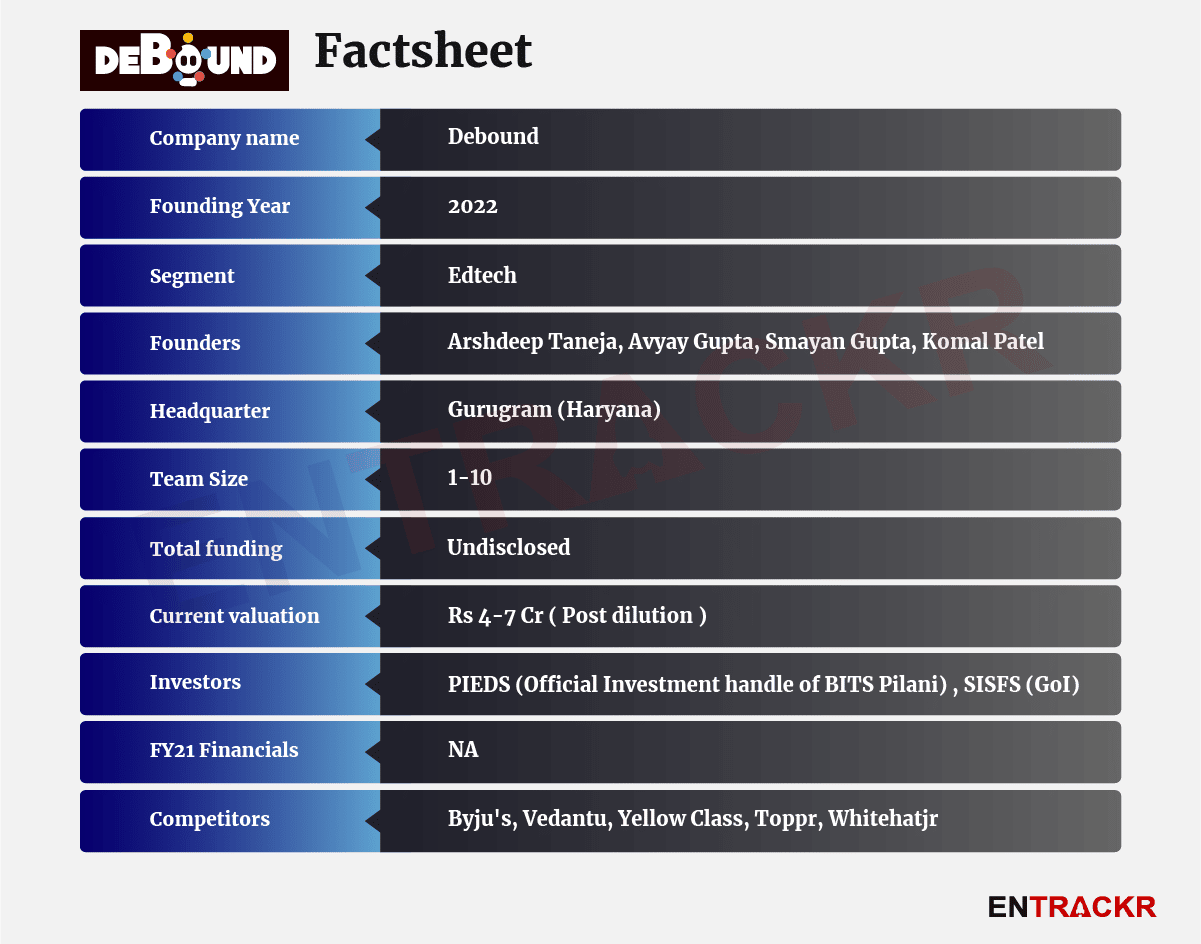Students’ lives are hard enough already. Even as there’s a fair bit of pressure to ace school, students often find it difficult to make time to acquire new skills, especially ones that can help them in the real world. Think communication, financial literacy, time management and even coding.
Gurugram-based edtech firm Debound is trying to solve this challenge with an algorithm-driven learning solution.
The idea for Debound comes from the real-life experience of the company CEO and co-founder Arshdeep Taneja and other co-founders: Avyay Gupta, Smayan Gupta, and Komal Patel.
Recalling early student life, Taneja said he and other co-founders participated in several extracurricular activities. But this changed after reaching Class XI – the year before students start preparing for college and competitive exams.

With Debound Taneja and his team aim to create a platform where students can continue pursuing additional skills without having to compromise on their academics.
“Parents want a holistic foundation for their children, but not at the cost of academics,” Debound CEO and co-founder Taneja told Entrackr.
Debound was set up just earlier this year in January, but was able to raise money a month after: In February, Debound raised an undisclosed sum in pre-seed funding from PIEDS, an investment vehicle of BITS Pilani. The company is also in the process of raising a seed round, said the founders.
Meanwhile, the founders are expanding aggressively. For its pilot launch, Debound had partnered with more than 10 schools in four states, catering to more than 700 students. The company is now gearing up to enroll 75,000 students in the next six months through a partnership with over 500 schools across India.
Debound is based on an algorithm-driven learning solution. For instance, if a student wants to learn coding as an additional skill and has algebra as part of their syllabus, with overlapping concepts, such as mathematical operations and variables, both subjects can be taught together.
Match-making-like algorithm embeds additional skills that a child chooses into suitable academic chapters, ultimately reducing the learning time. Debound then delivers videos, live classes, and other resources based on this personalized curriculum for each child. Debound has also partnered with NGOs, which give students real-life projects to work on.
Debound currently caters to students between Class 6 and Class 8 from the CBSE board. They plan to extend it to other boards as well.
“Every student should be able to use technology, creatively solve problems, communicate confidently, manage time, save and invest and stay fit,” Taneja said.
The company has other plans, too. They are partnering with organizations that offer services to schools to make Debound a part of their package. It also wants to enter the offline space – a new trend that a few edtech bigwigs like Byju’s and Unacademy are already riding on.
India’s edtech market, poised to become worth $5 billion by 2025, is already awash with multiple startups, including a few unicorns. Debound, however, is looking to stand out from the crowd by delivering an intersection of academics and additional learnings.
ALSO READ: The rise and fall of edtech startups in 2022: Entrackr report














